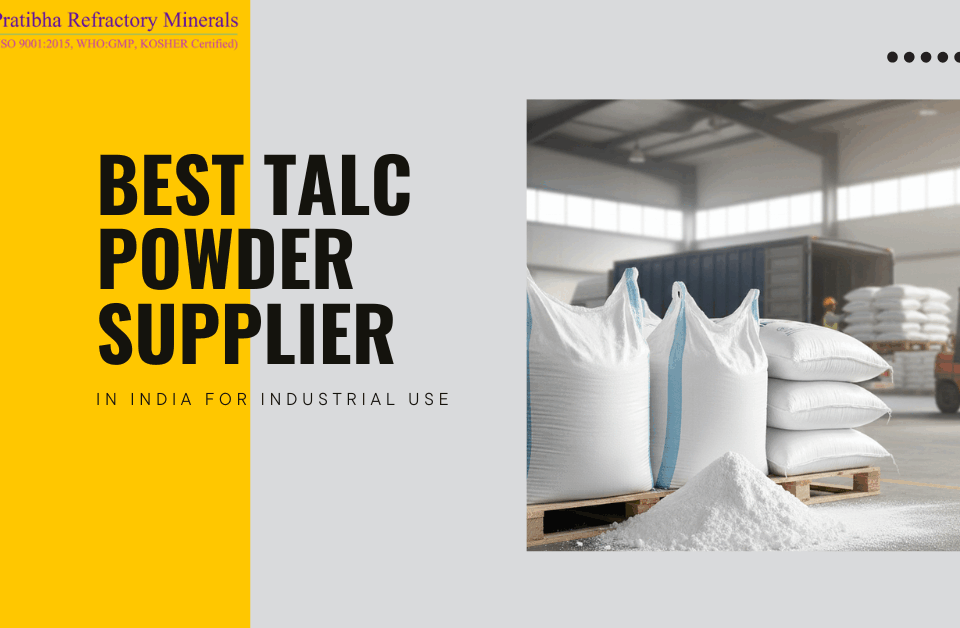- Call for Sales Enquiries

- +91-9413034047
- +91-294-2413244
- info@pratibharefractory.com
How to Incorporate Talc Powder into Your Manufacturing?

8 Industries that Rely on the Availability of Dolomite
September 2, 2024
The Role of Dolomite in Modern Industry
October 7, 2024How to Incorporate Talc Powder into Your Manufacturing?

Understanding Talc Powder and Its Benefits
Using talc powder as an input in your manufacturing activities can go a long way in improving the performance of the final manufactured goods. Some of the qualities of talc that are offered by Pratibha Refractory Minerals include high quality, excellent purity, a high degree of whiteness, and consistency. Talc powder also increases product shelf life, provides body and control texture, and acts as a direct or extendible filler economically. This property also makes the material resistant to water and therefore useful in applications where moisture is detrimental; it also will give the final product durability. Pratibha Refractory Minerals is one of the leading Supplier of talc powder and is focused on providing the best quality products.
1: Identifying an Appropriate Talc Powder
The first factor to consider when using talc powder in your manufacturing process is to choose the right grade of talc for your product. Talc powder can be further classified according to its particle size, purity, and the presence or absence of minerals. The choice of talc grade will depend on the needs of the final product, as there are different qualities of talc. On the other hand, it may be that coarser grades are more effective in ceramics since they improve the smoothness and the reflectance of the final product.
2: Identification of the best talc powder for consumption rate
This brings into focus the quantity of talc powder that you will apply to the mix after you have determined the right type of talc to use. Other things that can affect talc powder include the other factors or the type of item they would wish to produce. For example, this filler is used in greater quantities in the rubber industry as it improves the compound’s unique properties, such as molding and peeling. However, smaller amounts will be just fine in virtually all other such beauty products as long as they achieve the required consistency and permeability. undefined
3: Adding the talc powder into the process line
On its own, talc powder may have lumps or divide, and therefore, before including it as part of the production process, you require substantial proof that will effectively mix and combine with the other ingredients. Talc powder can be incorporated into the manufacturing process of the plastic during the compounding stage, where it is blended with the resins containing the polymers to form a consistent and homogeneous mixture. Limestone is added to the clay mixture before molding and roasting to enhance the texture and overall quality of ceramics. In the manufacturing process, the talc powder can be blended with other materials to come up with a smooth and finely powdered material for cosmetic products.
4: Monitor and check quality control
In all categories of the process, it is imperative to monitor and maintain the quality of the manufacturing to achieve optimal outcomes. This should be done regularly in a bid to check that the talc powder that makes the final item is homogeneous and that it has surpassed the required standards in a bid to combat this. Purchasing talc power from a reliable supplier, for example, Pratibha Refractory Minerals, ensures that the amount of talc power received is uniform, thus no inconsistency in the line of goods.
5: Identifying advantages and costs of product performance
When talc powder has been incorporated into the process, the outcome must be assessed. New talc powder formulations may help your product because user feedback and testing of the product performance can offer insight. Thus, Pratibha Refractory Minerals could provide professional advice and technical support to help make such changes and guarantee that the usage of talc powder will cause certain effects.


